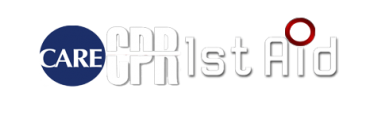Tetanus is a bacterial disease that can affect the nervous system, and causes painful muscle contraction particularly in the jaw and muscles of the neck. It interferes with the person’s breathing and causes serious health issues. Tetanus is also known as “lockjaw”. If you want to learn how to manage the symptoms of this condition, click here.
[youtube url=”https://www.youtube.com/watch?v=hw3qR98YjxI” width=”220″]There is no cure for tetanus and treatment is focused on managing the complications until the effects of tetanus toxins are resolved. Death is highest in individuals who were not immunized and in older people with inadequate immunizations.
The symptoms and signs of tetanus infections may occur from a few days up to several weeks after a tetanus bacterium enters the body through an open wound. The incubation period of the bacteria is from 7-8 days. Some usual signs and symptoms of the condition include:

- Spasm and stiffness of the muscles in the neck and jaw.
- Swallowing difficulty
- Rigidity of the muscles in the abdomen
- Sore body spasms caused by minor occurrence like draft, a loud noise, a physical touch and light.
- Other people may have fever
- Sweating
- High blood pressure and fast beating of the heart
The bacterium that causes tetanus, Clostridium tetani can be found in the soil, dust and feces of the animals. A person can be infected when the bacteria enters a deep wound, and spores of the bacteria will produce a powerful toxin called tetanospasmin that can impair the motor neurons and will cause spasms and stiffness of the muscles. Some conditions that can also cause tetanus include:
- Dental infections
- Burns
- Bites from animals
- High blood pressure
- Puncture wounds caused by piercings, tattoos and drugs used for injections
Treatment and home remedies for tetanus infection
Punctured wounds or deep cuts, animal bites or a dirty wound can put a person at increased risk of tetanus infection. Do not cover with bandage unclean wounds to avoid trapping the bacteria. The doctor needs to clean the wound, give the patient an antibiotic and a booster shot for the tetanus toxoid vaccine.
If the patient has a minor wound, some remedies include:
- If there is bleeding, apply direct pressure to the wound
- If the bleeding subsides, rinse the wound thoroughly in clean running water or use a saline solution if available. Clean the area around the wound using a washcloth and soap. If debris is embedded in the wound, seek medical help.
- If the wound is already clean, apply a thin layer of an antibiotic cream or ointment. It will stop the growth of bacteria and infection and will heal the wound efficiently.
- Keep the wound covered with bandages and blisters should also be covered until a scab forms.
- Change the dressing every day or whenever the dressing becomes wet or dirty to help prevent infection.
Prevention
A person can prevent tetanus by immunizing oneself against the toxin. Cases of tetanus infections happen in people who have never been immunized or haven’t had tetanus booster shot within the years of their life.
